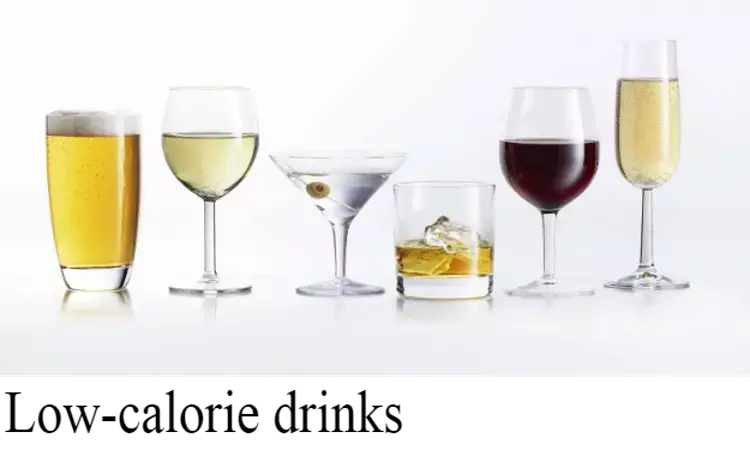- Home
- Medical news & Guidelines
- Anesthesiology
- Cardiology and CTVS
- Critical Care
- Dentistry
- Dermatology
- Diabetes and Endocrinology
- ENT
- Gastroenterology
- Medicine
- Nephrology
- Neurology
- Obstretics-Gynaecology
- Oncology
- Ophthalmology
- Orthopaedics
- Pediatrics-Neonatology
- Psychiatry
- Pulmonology
- Radiology
- Surgery
- Urology
- Laboratory Medicine
- Diet
- Nursing
- Paramedical
- Physiotherapy
- Health news
- Fact Check
- Bone Health Fact Check
- Brain Health Fact Check
- Cancer Related Fact Check
- Child Care Fact Check
- Dental and oral health fact check
- Diabetes and metabolic health fact check
- Diet and Nutrition Fact Check
- Eye and ENT Care Fact Check
- Fitness fact check
- Gut health fact check
- Heart health fact check
- Kidney health fact check
- Medical education fact check
- Men's health fact check
- Respiratory fact check
- Skin and hair care fact check
- Vaccine and Immunization fact check
- Women's health fact check
- AYUSH
- State News
- Andaman and Nicobar Islands
- Andhra Pradesh
- Arunachal Pradesh
- Assam
- Bihar
- Chandigarh
- Chattisgarh
- Dadra and Nagar Haveli
- Daman and Diu
- Delhi
- Goa
- Gujarat
- Haryana
- Himachal Pradesh
- Jammu & Kashmir
- Jharkhand
- Karnataka
- Kerala
- Ladakh
- Lakshadweep
- Madhya Pradesh
- Maharashtra
- Manipur
- Meghalaya
- Mizoram
- Nagaland
- Odisha
- Puducherry
- Punjab
- Rajasthan
- Sikkim
- Tamil Nadu
- Telangana
- Tripura
- Uttar Pradesh
- Uttrakhand
- West Bengal
- Medical Education
- Industry
Low-calorie sweeteners along with carbohydrates may decrease insulin sensitivity, finds study.

Combining low-calorie sweeteners with other carbs and sugars can increase the risk of type 2 diabetes.
US: There is a general belief that overconsumption of sugar-sweetened beverages contributes to the prevalence of obesity and related comorbidities such as type 2 diabetes (T2D). Whether a similar relationship exists for no- or low-calorie "diet" drinks is still in a debate.
Researchers from Yale University tested glucose tolerance and taste perception before and after participants consumed seven 355 mL novel-flavoured equi-sweet beverages over 2 weeks using randomized double-blind designs. They demonstrated that consuming seven sucralose-sweetened beverages with, but not without, a carbohydrate over 10 days decreases insulin sensitivity in healthy human participants, an effect that correlates with reductions in the midbrain, insular, and cingulate responses to sweet, but not sour, salty, or savoury, taste as assessed with fMRI. Taste perception was unaltered and consuming the carbohydrate alone had no effect.
Forty-five healthy humans were randomly assigned to consume(1) beverages sweetened with sucralose (sweet uncoupled from calories – LCS),
(2) beverages sweetened with sucrose (sweet coupled with calories – Sugar), or
(3) beverages sweetened with sucralose and combined with maltodextrin (Combo).
Oral glucose tolerance tests (OGTTs) (or single blood draws), sensory tests, and neuroimaging were conducted before and after participants consumed seven of their assigned beverages over 2 weeks in the laboratory. Protocol details and inclusion/exclusion criteria are listed in the STAR Methods. A parallel study was conducted in adolescents since adolescents go through a period of transient insulin resistance.
To surprise the researchers the study result found that combining low-calorie sweeteners with other carbs and sugars caused insulin sensitivity to drop, which increases the risk of type 2 diabetes. Additionally, the researchers discovered that there were no changes in the brain or metabolic responses to sugars when drinks containing low-calorie sweeteners alone were consumed.
"The bottom line is that, at least in small quantities, individuals can safely drink a diet soda, but they shouldn't add French fries," states Professor Dana Small director of the university's Modern Diet and Physiology Research Center and a senior author of the study.
Limitations of the study should be considered due to the small sample size and short duration. However, the findings provide an interesting avenue for further research to explore in-depth the effects of low-calorie sweeteners.
For more information click on the following link,
MBBS
Dr K B AARTHI-has completed MBBS from SRM UNIVERSITY TAMIL NADU,Her interest is in the field of Pediatrics and Anaesthesia, also passionate in doing research and publishing articles.She joined Medical Dialogues in 2020 and publishes health news and medical updates. Email: editorial@medicaldialogues.in. Contact no. 011-43720751,9786713226
Dr Kamal Kant Kohli-MBBS, DTCD- a chest specialist with more than 30 years of practice and a flair for writing clinical articles, Dr Kamal Kant Kohli joined Medical Dialogues as a Chief Editor of Medical News. Besides writing articles, as an editor, he proofreads and verifies all the medical content published on Medical Dialogues including those coming from journals, studies,medical conferences,guidelines etc. Email: drkohli@medicaldialogues.in. Contact no. 011-43720751


